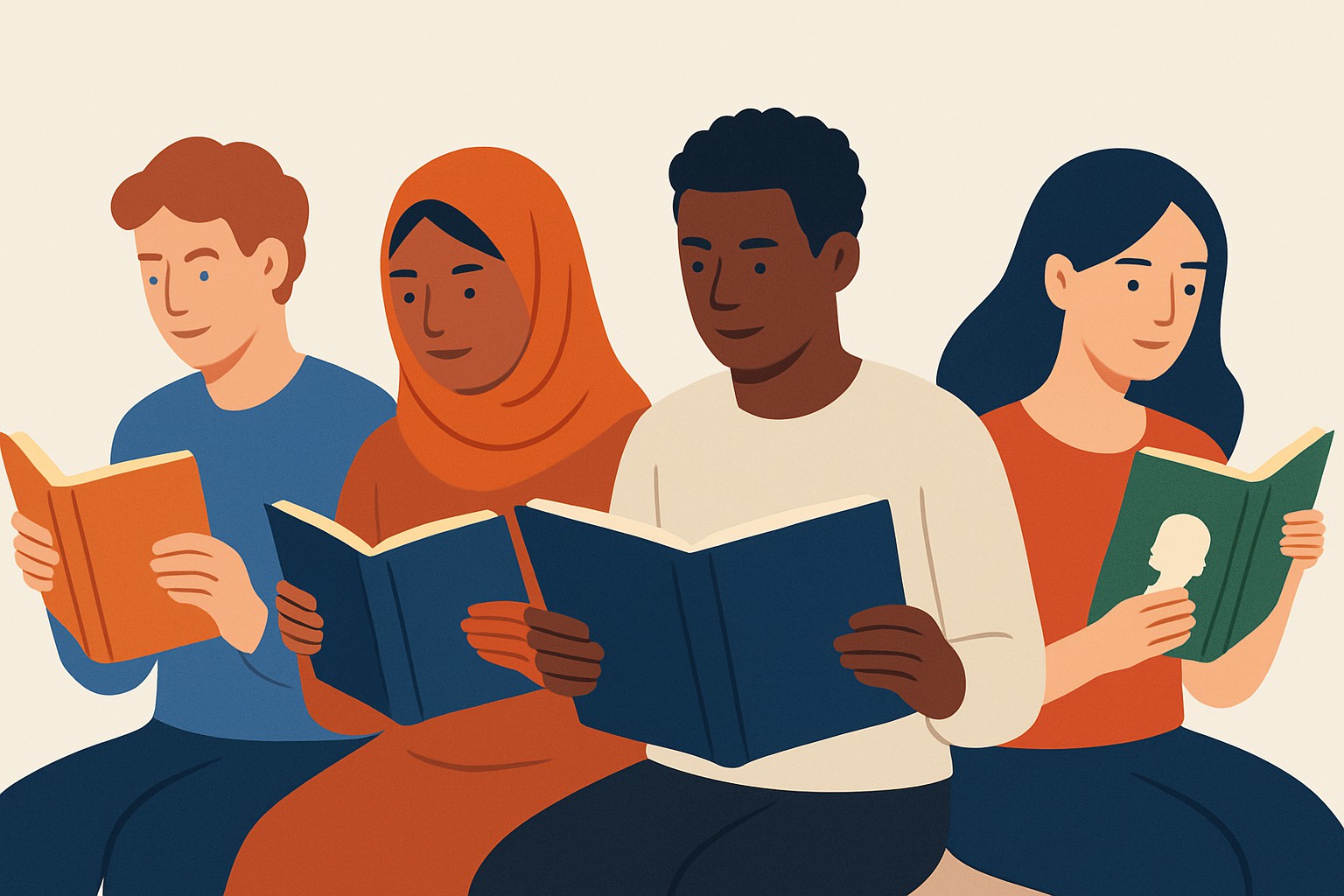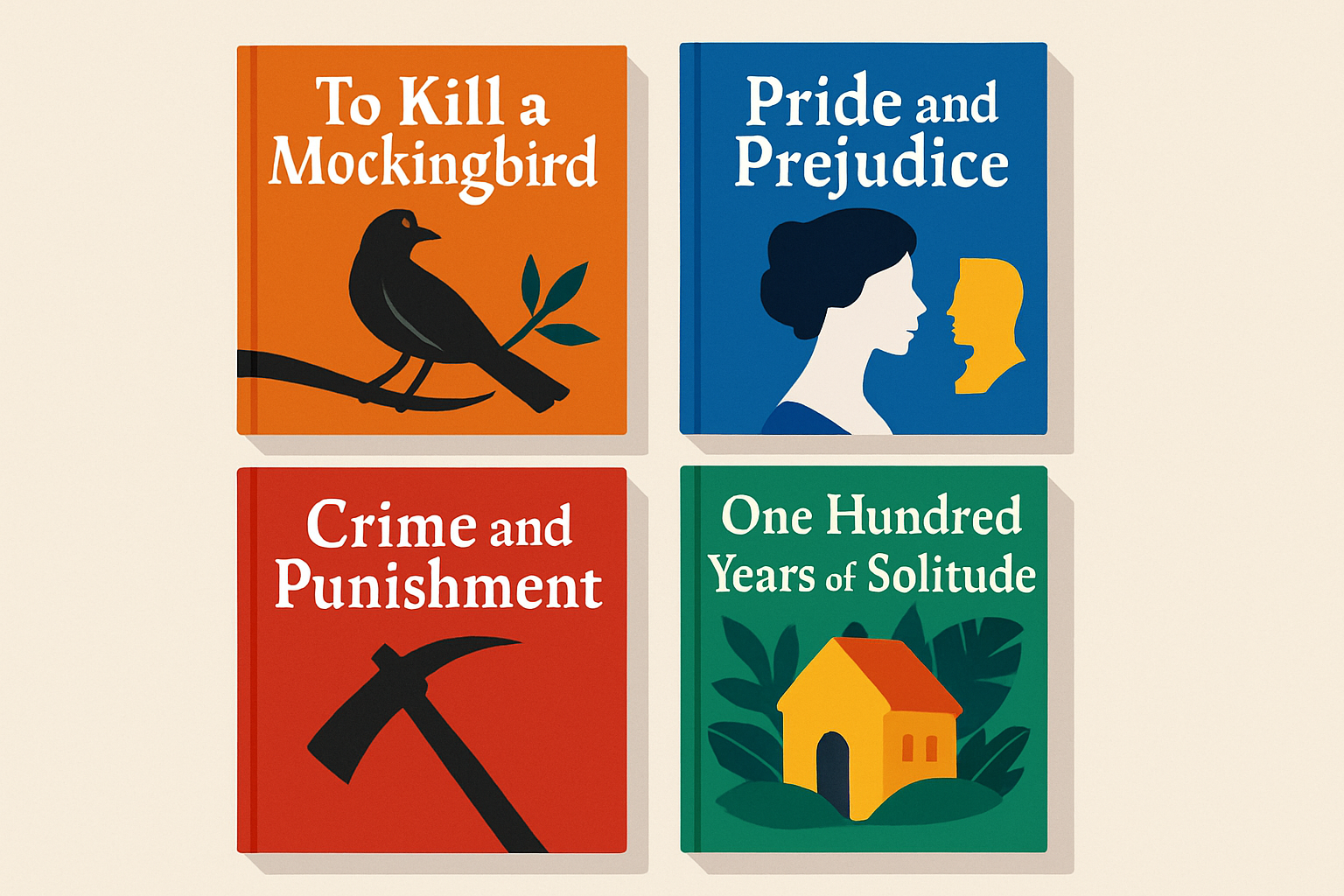
The Role of Universal Novels in Literature and Storytelling

Universal novels truly hit home when their themes, messages or characters tap into big core human experiences that everyone no matter where they come from can relate to.
Key Traits and Features That Make a Novel Universal
Universal novels tend to share some key traits that help their stories strike a chord with a broad audience. They often dive into themes like love, conflict, identity and morality—those timeless elements that tap into the core of what it means to be human. These themes bridge readers from all walks of life and different eras.
- Themes like love, loss, justice and family that keep striking a chord no matter the era.
- Characters who really come to life wrestling with dilemmas and emotions everyone has faced at one time or another.
- Emotional depth that gently pulls readers in and nudges them to reflect on their own stories and feelings.
- A cross-cultural appeal that taps into universal human values beyond any one society or tradition.
- Moral and philosophical questions that spark thoughtful reflection and lively discussion.
- The kind of flexibility that lets these stories jump from page to screen, stage or any storytelling medium you can think of.
A Closer Look at the Intriguing History and Evolution of Universal Novels
The idea of universal novels traces back to classical literature where epics and fables did more than just entertain—they captured timeless human truths that stick with us.
| Title | Author | Publication Year | Core Theme | Enduring Influence |
|---|---|---|---|---|
| "The Odyssey" | Homer | c. 8th century BC | Heroism, adventure | Often hailed as the bedrock of Western storytelling, it’s the original blueprint for the classic heroic journey that still resonates today |
| "Don Quixote" | Miguel de Cervantes | 1605 | Reality vs illusion | A witty and sharp satire on chivalry, it cleverly dives into the quirks and follies of human nature |
| "Pride and Prejudice" | Jane Austen | 1813 | Society, love | Delivers crisp, insightful commentary on social class and the tangled dance of relationships |
| "Crime and Punishment" | Fyodor Dostoevsky | 1866 | Morality, guilt | Famous for its intense psychological depth and probing ethical dilemmas that still provoke thought |
| "One Hundred Years of Solitude" | Gabriel García Márquez | 1967 | Family, time, magic realism | A cornerstone of magical realism that has deeply influenced cultural identity and storytelling alike |
| "To Kill a Mockingbird" | Harper Lee | 1960 | Justice, racial equality | Continues to pack a punch with its powerful social critique on prejudice and moral conscience |
Why Universal Novels Hold a Special Place in Literature and Storytelling
There’s something about universal novels that just clicks with people across all walks of life. These stories have this remarkable way of tapping into shared human experiences—pulling at heartstrings or sparking recognition no matter where you come from. It’s like they carry a little piece of everyone’s story, wrapped up in characters and worlds that feel both familiar and fresh. And honestly, I’ve found that these kinds of novels tend to stick with you long after you turn the last page—sometimes popping into your mind when you least expect it. They remind us why storytelling, in all its forms, remains one of humanity’s most cherished traditions.
Universal novels do more than just entertain us. They quietly shape cultural perspectives and spark empathy. They offer windows into one another’s worlds by focusing on experiences many people share. Readers often find themselves unexpectedly moved and come away with a richer sense of values, ethics and the tough issues society wrestles with.
"Universal novels have this quiet magic about them, gently revealing that beneath all our surface differences, our stories often share surprisingly common threads. They’re like those sturdy bridges that connect hearts across time and space, warmly inviting us to tap into the broader, messy, beautiful human experience." – Literary Scholar Dr. Lina Morales
Examples of Universal Novels Alongside Their Central Themes
Here are a few timeless tales that have managed to strike a universal chord, each paired nicely with its main idea—because who does not love a good story with a solid theme to chew on?
Certain novels manage to strike a chord across cultures because they delve into themes that reveal universal truths about life, relationships and society.
- To Kill a Mockingbird dives headfirst into themes like justice, empathy and racial inequality through the fresh and sometimes naive eyes of childhood innocence.
- The Great Gatsby peels back the glittery curtain on the chase for the American Dream. It reveals how fragile and slippery our sense of identity can be.
- One Hundred Years of Solitude offers a rich tapestry of family, time and history wrapped in a magical realist world that feels both familiar and enchanting.
- Pride and Prejudice zeroes in on social class, love and the power of individual choice with a dash of wit and sharp observations.
- Crime and Punishment delves deep into the murky waters of morality and guilt and the tantalizing if often elusive possibility of redemption.
These novels tap into feelings and questions that never go out of style no matter when or where you drop into the story. By diving into timeless themes like justice and ambition, family bonds, social expectations and moral dilemmas, they gently pull readers in.

The Lasting Influence of Universal Novels on Modern Storytelling and Media
Universal novels often spark a cascade of films and television shows and all sorts of storytelling adventures. Their timeless themes and deep memorable characters give creators plenty of wiggle room to reinterpret and reshape these tales, making them more relatable to fresh audiences and different cultural backdrops.
- Classic novels like Pride and Prejudice have sparked countless film and TV adaptations over the years proving that some stories never get old.
- Transmedia storytelling often takes these novel narratives on a wild ride branching out into video games and graphic novels and even web series creating rich worlds that fans love to dive into.
- Universal themes pop up again and again in modern works echoing contemporary social issues in ways that feel fresh and relevant.
- Cross-cultural reinterpretations breathe new life into these timeless tales serving up fresh perspectives and a welcome dose of diversity that keeps the stories thriving.
Clearing Up a Few Common Misunderstandings About Universal Novels
There are quite a few common misconceptions floating around about universal novels. People often assume they have to be old classics or somehow completely stripped of any cultural flavor. Universality springs from themes that really strike a chord with the human experience, no matter how old the book is or where it comes from.
- Myth: actually a rich cultural backdrop often adds unexpected depth and flavor making those universal themes hit even harder.
- Myth: plenty of contemporary works are proving that fresh perspectives can resonate just as widely.
- Myth: far from it. Many pack in complex plots and layers that keep you thinking long after the last page.
Practical Insights on How Writers Can Shape Novels That Truly Resonate Around the Globe
Aspiring authors often cook up novels that resonate far and wide by zeroing in on themes just about everyone can connect with, all while sprinkling in unique cultural flavors.
Keep an eye out for universal themes like love, conflict, growth or justice. These are timeless threads that tend to strike a chord across all cultures.
Build characters who feel real and relatable—folks with emotions and struggles readers can genuinely connect with. Avoid creating cardboard cutouts.
Focus on emotional honesty instead of getting tangled up in complex plots. It’s often the heart that hooks your audience.
Mix specific cultural details with broader human experiences to make sure your story stays welcoming and accessible no matter who is reading.
Use symbolism and metaphor carefully because they are great tools to add depth. However, too much can unintentionally keep readers at arm’s length.
Successful universal novels skillfully weave detailed personal experiences with bigger themes, giving readers those little moments where they see pieces of their own lives reflected in unique stories. Writers really have to juggle this balance—layering in rich, vivid details while still leaving enough room for broad reflection.
Looking Ahead to Universal Novels in a World That’s Truly Connected
The world becomes increasingly interconnected, universal novels are bound to emerge from a colorful tapestry of voices and a wide array of digital storytelling platforms. These exciting shifts often lead to richer, more inclusive stories that truly capture the vast spectrum of human experiences.
Passionate by sustainable living, this environmental journalist bridges the gap between complex ecological research and practical everyday solutions for modern households.
Read Pages






